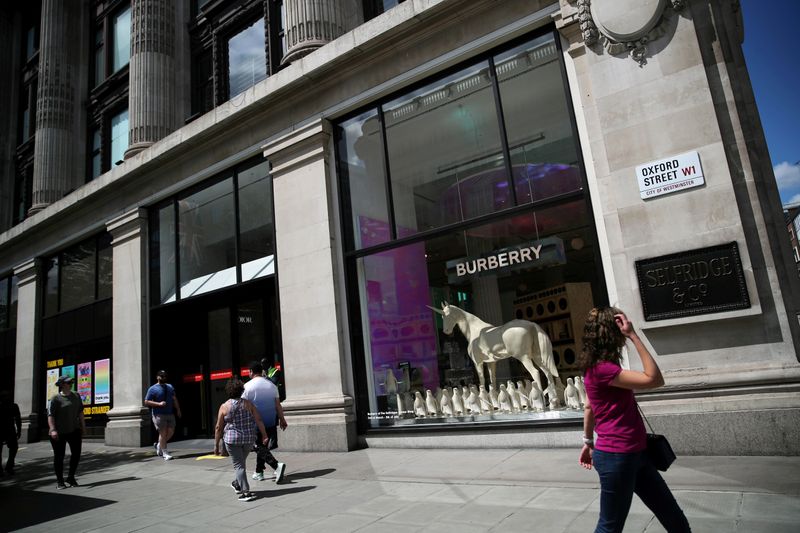Investing.com -- Shares of Burberry Group (OTC:BURBY) plc surged by 14% on Thursday as the company outlined its strategy to stabilize performance under new CEO Joshua Schulman, despite a challenging first half of the fiscal year.
The luxury brand’s interim results flagged significant pressures: revenue declined by 20%, with operating income swinging to a loss of £41 million compared to a £232 million profit a year ago.
“We update our model to FY25 adj. EBIT loss of €11m (vs. loss of €23m prior) more/less flowing through the H1 beat,” said analysts at Morgan Stanley (NYSE:MS) in a note.
Burberry’s first-half results underscore the difficulty of its recent push to expand beyond core outerwear offerings.
Sales in the Asia-Pacific region dropped by 28%, and the Americas saw an 18% decline, though these were mostly in line with expectations.
The brand also reported a 640-basis-point hit to gross margins due to high inventory levels, with an operating margin impact of nearly 20 percentage points year-on-year.
Inventory issues have led to write-downs and impairments totaling around £33 million.
Schulman has outlined a renewed focus on outerwear, the segment most associated with Burberry’s heritage.
This pivot away from recent efforts to elevate the brand into more diverse luxury categories marks a significant shift in strategy.
His plan to rebuild Burberry’s revenues to £3 billion, primarily through renewed attention on core products, contrasts with more modest market forecasts for around £2.73 billion by 2027-2028.
At first glance, analysts at Morgan Stanley interpret management’s stance to suggest confidence that, under the new strategic plan, Burberry (LON:BRBY) sees no structural obstacles to achieving the targeted revenue, a gross margin around 70%, and an operating margin in the high teens—levels similar to the pre-COVID five-year average.
The key to reaching these targets, however, will be effective execution of the strategy.
Financially, the brand remains cautious about near-term profit recovery. Burberry’s recent guidance acknowledged that it’s uncertain whether the second half will fully offset losses from the first half.
As part of a cost-saving program, Burberry plans to reduce operating expenses by £40 million annually, capturing £8 million in savings so far this fiscal year.
Analysts at RBC Capital Markets observe that Burberry’s financial performance has significantly declined, driven by a tougher luxury market and a miscalculation of price elasticity in its leather goods segment.
However, they view the strategic pivot back to outerwear as a positive shift, bringing more authenticity to the brand in a product category that faces relatively less competition.
